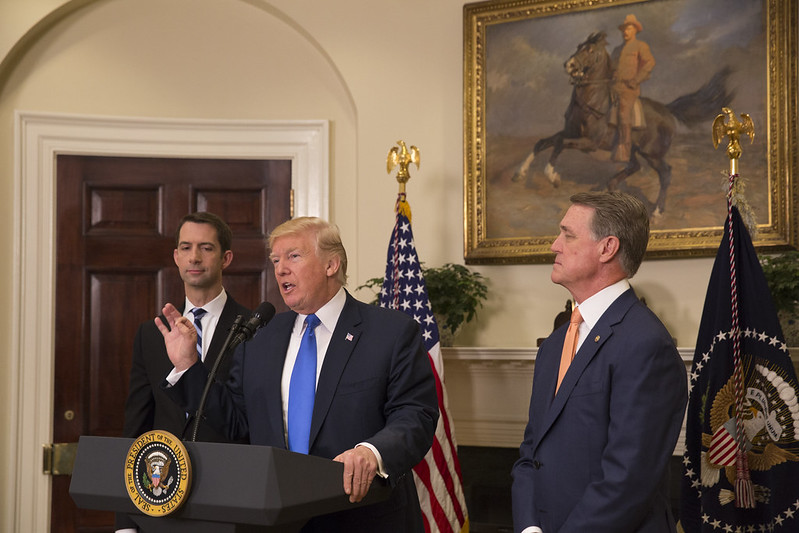Senate Republicans said Thursday they are eager to begin work on President Trump’s “big, beautiful bill,” with plans to propose their own changes to the House-passed legislation by the July 4 weekend.
With a 53-47 majority, Republicans intend to advance the bill through the budget reconciliation process, allowing them to bypass the 60-vote threshold and avoid needing Democratic support.
However, any changes made in the Senate would require the legislation to return to the House for additional debate and another vote.
The bill, a cornerstone of President Trump’s agenda, includes broad spending cuts and across-the-board tax reductions. It also blocks the expiration of the 2017 Trump tax cuts, averting what would have been the largest tax hike in U.S. history. Additionally, the legislation allocates funding for border security, national defense, and initiatives to boost domestic energy production, the Washington Times reported.
However, the bill could be derailed if just three Republican senators oppose it. Sens. Susan Collins of Maine and Lisa Murkowski of Alaska have expressed concerns about the legislation’s impact on Medicaid, while Sen. Josh Hawley of Missouri has stated he will not support any bill that includes cuts to the program.
“I have said and made clear that I do not want to take away Medicaid benefits, which would not only hurt low-income families, but also our rural hospitals,” Collins said. “In particular, I am for work requirements for able-bodied individuals, as long as they’re carefully drafted.”
Sen. Rand Paul of Kentucky opposes the bill as it stands, though he told reporters Thursday he could vote for the package if a provision to raise the debt ceiling were removed from it.
“The anticipated deficits per year now will be 2 trillion a year for the next two years. So it’s not conservative, and I can’t support it,” Paul said. “If they were to take the debt ceiling off of it and have the tax reductions and the spending reductions, I’d probably vote for that.”
Other Republicans are pushing for additional changes to the legislation. Sen. Thom Tillis of North Carolina said he is advocating for making business expensing relief permanent.
Sen. Ted Cruz voiced strong support for the bill, particularly its provisions on school choice and the Invest America initiative, which he described as “transformational.” He also emphasized the importance of retaining investment account provisions, including Opportunity Zone designations and associated tax incentives.



